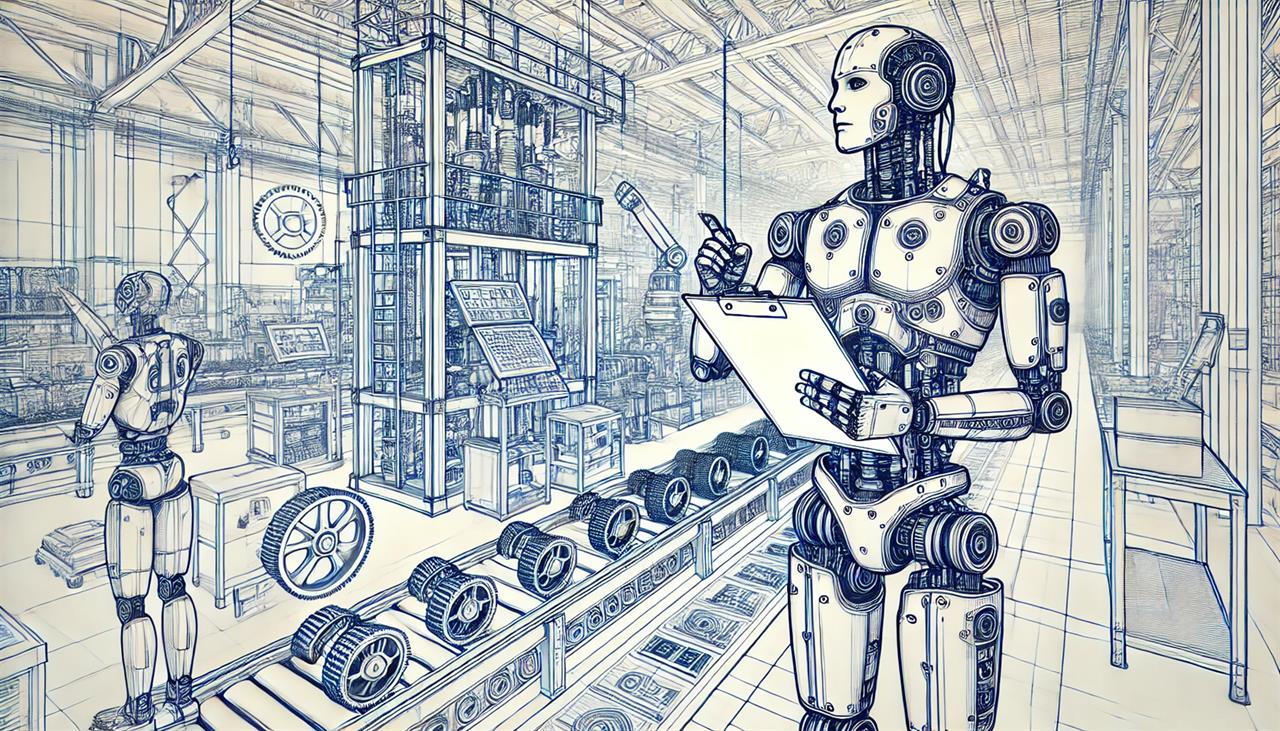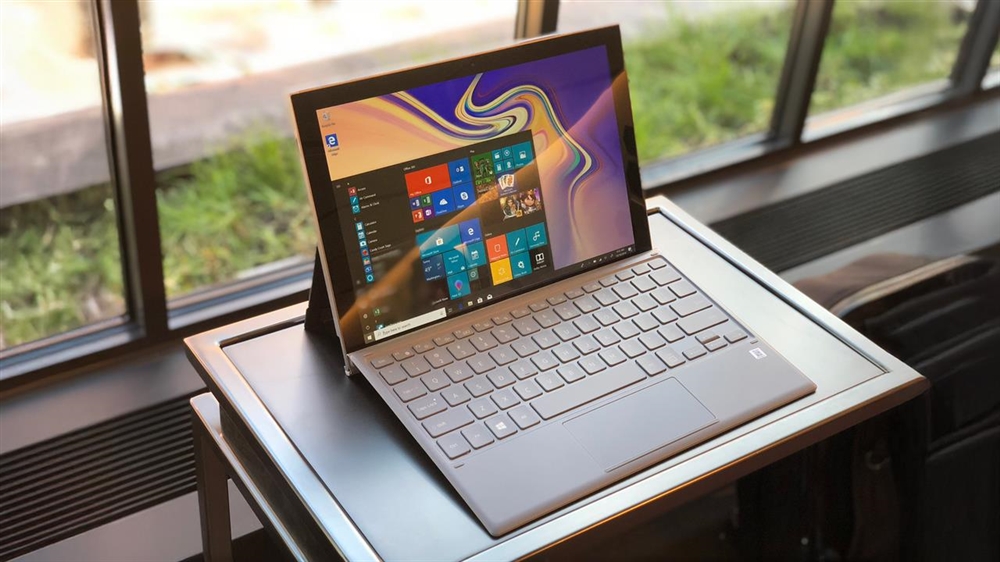This Week in AI: OpenAI's Five Steps to AGI
For July 12, 2024: Samsung adds more AI to devices, AI at home, Google's environmental goals, Meta's changing labels.News

OpenAI is developing a new five-step roadmap to track just how powerful artificial intelligence is becoming on its path towards achieving AGI, or artificial general intelligence. That's the quest for an AI that can mimic human reasoning and outperform us at most tasks.
The company tells Bloomberg that today's AI chatbots, like ChatGPT, are still at level one, but we're close to reaching level two, which it calls "Reasoners," and that can solve problems with PhD-level skill. After that would come "Agents," which can independently act on your behalf for days at a time. Level four is the ability to innovate and come up with new concepts, while level five is "Organizations," which can do the work of an entire business org.
When, or even if, we'll reach these levels of AI is up for debate, and the five-level scale is still an internal work-in-progress for the company. However, OpenAI CEO Sam Altman has previously said we might reach the AGI milestone in the next five years.
Samsung adds AI to watches, rings, and more
Samsung's Galaxy Unpacked event in Paris this week had a lot on tap: The new Galaxy Fold 6 foldable tablet, Galaxy Flip 6 foldable smartphone, Galaxy Ring sensor, Galaxy Watches and Galaxy Buds 3 earbuds.
But the thing Samsung was pitching most of all was artificial intelligence.
The tech giant discussed how its Galaxy AI was being built into each of its devices, whether that be to help make your sketches better with the Fold, live translate conversations with the Flip, track your health with the Ring and Watches or improve sound while blocking out noise with the Buds.
In each case, Samsung said AI was helping to make these products better. In return, Samsung said some of its prices would rise to help offset the new features, which it would not charge a subscription for.
"We believe that AI should empower people in their daily lives, and that technology should adapt to you, not the other way around," Samsung President TM Roh said while announcing the new products. He added that the company's Galaxy AI will be available on 200 million Galaxy devices this year. "The impact will be profound."
Run your own AI at home
YouTuber Techno Tim is known for building self-hosted setups of all sorts of software, and recently he decided to make his own private-running AI. Instead of merely rolling his own GPT on his computer, Techno Tim took things a step further by running LLMs through OpenWebUI.
YOUTUBE VIDEO: https://www.youtube.com/watch?v=GrLpdfhTwLg
He initially had planned to publish his video showing off his setup, then write instructions later. But his video got so much attention that he's created a separate video and instructions showing how to set everything up.
YOUTUBE VIDEO: https://www.youtube.com/watch?v=yoze1IxdBdM&t=0s
If you're jealous, head over to Micro Center's server-grade parts section and get started building your own. You can also consider upgrading to an AI PC too.
Google's AI is setting back its environmental goals
Google's efforts to pull ahead in the AI race are causing it to fall short of its climate goals. The tech giant said in its 2024 Environmental Report that emissions had grown 48% since 2019, and in large part due to energy demands from AI. The company now says its goal to reach net-zero emissions by 2030 is "extremely ambitious" and "won't be easy."
"Our approach will continue to evolve and will require us to navigate significant uncertainty–including the uncertainty around the future environmental impact of AI, which is complex and difficult to predict," the company said. Further, Google said greenhouse emissions will likely rise "before dropping to our absolute emissions reduction target."
Google isn't alone. Microsoft as well saw an increase in emissions last year due to energy demands from AI, and more likely will follow.
"We believe that companies that can do more, should," Microsoft said in its sustainability report released in the spring. "In this era of AI, we remain committed to responsible innovation, ensuring that we’re building a responsible future for everyone."
Meta changing AI labels
A couple of weeks ago, TechCrunch and PetaPixel wrote about how Meta's AI detection software was mislabeling some authentic posts as "Made with AI." There were many theories as to why, including that Adobe's editing software may have added metadata to even lightly cropped or edited photos, tripping Meta's systems.
Regardless of the reason, former White House photographer Pete Souza found that one of his real-life photos was slapped with the "Made with AI" label after being published to Instagram.
Last week, Meta said announced changes, including a change to its label that now beckons people to click on a link called "AI Info" rather than the more warning-like "Made with AI."
"While we work with companies across the industry to improve the process so our labeling approach better matches our intent, we're updating the 'Made with AI' label to 'AI info' across our apps, which people can click for more information," the company said in a statement.
Meta is one of a growing list of companies who have said they will add data to images and videos to help identify when they've been created or edited with AI-powered software. Other companies who've made similar pledges include Apple, OpenAI, Google, and Microsoft.
Read more: AI Tools and Tips
- Microsoft Surface Laptop Review: The First Copilot Plus PC
- How To Use AI to Convert a Photo to a 3D Model
- What is TOPS? The AI Performance Metric Explained
- Copilot Plus PCs vs AI PCs: What's The Difference?
- Microsoft Launches a New Era of Copilot Plus PCs
- Hands-on with the Faster, Smarter ChatGPT-4o AI
- Why Coders are Learning to Love Copilot
- Roll Your Own GPT: Setting Up Your Computer for Local AI
- How to Get NVIDIA Chat with RTX: Local AI for Everyone
- How to Make Sure Your Next Computer Is AI Ready
Ian Sherr is a widely published journalist who's covered nearly every major tech company from Apple to Netflix, Facebook, Google, Microsoft, and more for CBS News, The Wall Street Journal, Reuters, and CNET. His stories and their insights have moved markets, changed how companies see themselves and given readers a unique view into how some of the world’s most powerful brands operate. Aside from writing, he tinkers with tech at home, is a longtime fencer -- the kind with swords -- and began woodworking during the pandemic.











